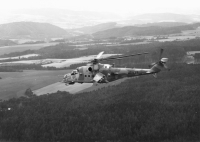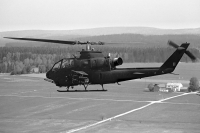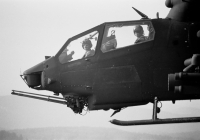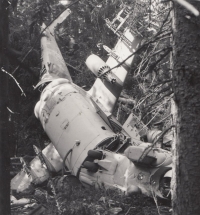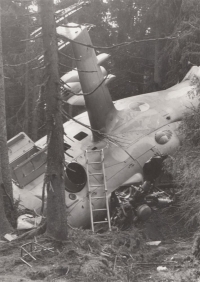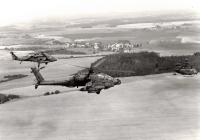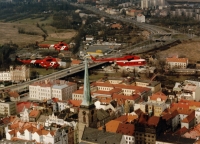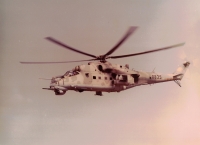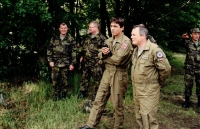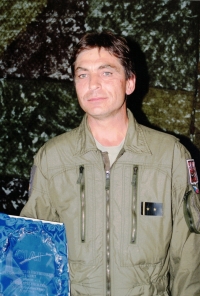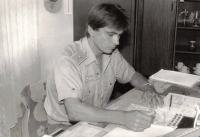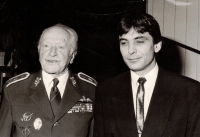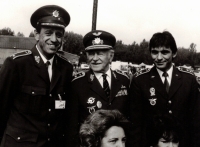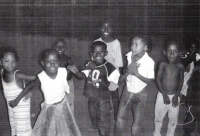„Ich würde zurückschießen, aber ich würde nicht als Erster das Feuer eröffnen. Ich würde hundert Ausreden finden, wie eine Ladehemmung im Maschinengewehr…“

Download image
Im Jahr 1984 beschloss die Führung der damaligen Tschechoslowakischen Volksarmee, zwei Maschinen der 11. Hubschrauberstaffel zur Bewachung der Staatsgrenze zwischen der Tschechoslowakei und der Bundesrepublik Deutschland in der Ortschaft Zhůří bei Horská Kvilda im Böhmerwald einzusetzen. “In der Zeit des ausklingenden Kalten Krieges häuften sich die Fälle, in denen Hubschrauber oder langsam fliegende Flugzeuge die Staatsgrenze verletzten,” erzählt Jiří Jogl, einer der damaligen Piloten, über die Gründe für die Verlagerung von Fluggerät an den gefürchteten Eisernen Vorhang. Seinen Erinnerungen zufolge erfüllte der Einsatz von Hubschraubern seinen Zweck und führte zu einem Rückgang der Flugaktivitäten auf deutscher Seite. “Sie hatten Angst vor unseren Maschinen. Wenn immer dieser Hubschrauber auf Sie zuflog, sah er bedrohlich aus. Er hatte eine ziemlich starke Bewaffnung, Blöcke voller S-5-Raketen und 1.470 Schuss in der Bordkanone”. Die Piloten setzten jedoch oft ihr Leben aufs Spiel. 1985 kam es im Grenzstreifen in der Gegend von Poledník zu einem Unfall. “Damals waren drei Personen an Bord. Sie gerieten auf die Leeseite des Hügels, wo sich die absteigenden Luftströme bilden, und aufgrund des Leistungsabfalls stürzten sie in den Wald”. Den Hubschrauber, der nach der verunglückten Maschine suchte, hätte beinahe das gleiche Schicksal ereilt. Glücklicherweise kam niemand damals ums Leben, aber einer der Piloten trug bleibende Folgen seiner Verletzungen davon. Der Unfall zog Änderungen nach sich, ein Jahr später zog die Staffel von Zhůří nach Kříženec bei Chodová Planá um. Jiří Jogl blieb der Fliegerei auch nach 1989 in der freien Welt treu, arbeitete bei der Luftrettung und später als Dozent in mehreren afrikanischen Ländern. Text pochází z výstavy Paměť hranice (nejde o překlad životopisu) Der Text stammt aus der Ausstellung Das Gedächtnis der Grenze (es handelt sich nicht um Übersetzung der Biografie)
